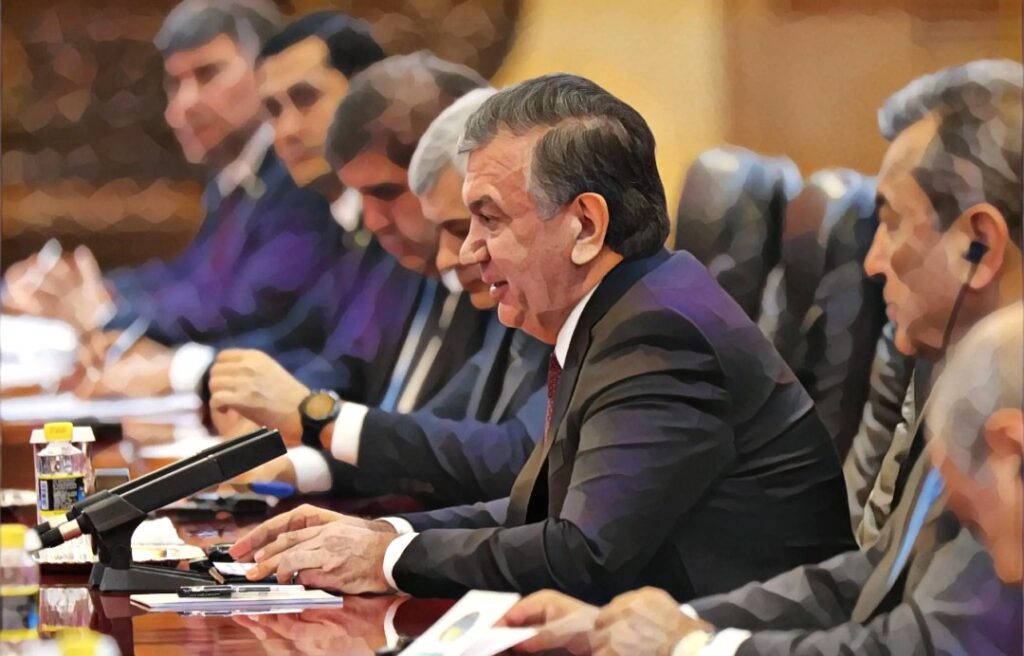Raimbek Matraimov, infamously known as “Millions” for his tremendous wealth, once wielded immense power in Kyrgyzstan. Rising to prominence as deputy chairman of Kyrgyzstan’s Customs Service from 2015 to 2017, Matraimov’s tenure became synonymous with corruption and organized crime. His activities, alleged to have funneled monumental sums of money through shadowy operations, fashioned him not only as a dominant figure within the Customs Service but also as a key player in Kyrgyzstan’s criminal underworld.
The Rise of Raimbek Matraimov
During his time in the Customs Service, Matraimov amassed an extraordinary fortune. His influence extended beyond bureaucratic corridors, infiltrating the political landscape of Kyrgyzstan. Whispers of his role as an organized crime leader were persistent, yet his wealth and connections left him virtually untouchable in those years.
Speculation about his political influence peaked after the dramatic rise of Sadyr Japarov to Kyrgyzstan’s presidency in October 2020. Japarov’s elevation, from prison to the highest office amidst a tide of civil unrest, prompted many to suspect that Matraimov’s financial backing played a decisive role in the ascent. However, despite Japarov-appointed head of Kyrgyzstan’s State National Security Committee (GKNB), Kamchybek Tashiyev once describing him as a “good guy,” if Matraimov hoped to shelter under Japarov’s influence, his expectations were soon dashed.
The Turning Point
Japarov’s administration showed no hesitation in targeting Kyrgyzstan’s entrenched criminal networks. With Matraimov having bounced in and out of jail since October 2020, by October 2023, the GKNB had escalated their crackdown on organized crime, culminating in the death of Kamchybek Kolbayev, the country’s top crime kingpin – a member of the “Bratva” linked to heroin trafficking – during a security operation in Bishkek.
Sensing the shifting winds, Matraimov fled Kyrgyzstan shortly after Kolbayev’s death. However, his flight only seemed to intensify the resolve of the government in his homeland, where the authorities began seizing Matraimov’s assets and investigating his allies. Among those implicated was Matraimov’s brother, Iskender, a parliamentary deputy with significant political connections.
Extradition and Arrest
In late March 2024, Kyrgyzstan’s crackdown on Matraimov escalated when the GKNB detained five Azerbaijani nationals in Bishkek. These individuals, suspected members of a transnational organized crime group, were allegedly dispatched by Matraimov from Azerbaijan to assassinate top Kyrgyz government officials. This accusation – one of countless similar claims regarding assassination attempts made by the Kyrgyz authorities this year alone – led to diplomatic action, and March 26, 2024, Matraimov along with three of his brothers were extradited from Baku to Kyrgyzstan.
Upon his arrival, Matraimov was immediately taken into custody. The legal net tightened further as the case against him unfolded, with allegations of illegal border crossings, hooliganism involving weapons, money laundering, and broader accusations regarding his criminal empire.
Asset Seizures and Financial Settlements
Prior to his sentencing, Matraimov had reportedly returned $200 million to the state budget, equivalent to over 17 billion Kyrgyz som, to be released from custody to house arrest pending his trial. Authorities also confiscated significant assets, including a 14-story business center in Bishkek valued at $53 million, which was repurposed into a hospital for law enforcement. Apartment buildings in the city of Osh, built under a partnership with the Ihlas company, were also seized and sold at a discounted rate for state use. In total, Matraimov is alleged to have laundered “at least $700 million“.
Plea Agreement and Sentencing
Despite this, on December 6, 2024, the Pervomaisky District Court of Bishkek handed down its judgment in a legal resolution as remarkable as Matraimov’s rise to power. Found guilty under charges including illegal border crossings and hooliganism involving dangerous weapons, having entered a plea agreement admitting his guilt, Matraimov was ordered to pay a fine of just 100,000 Kyrgyz som ($1,150), a remarkably lenient sentence given the extent of his crimes.
The plea agreement, approved by the Prosecutor General’s Office, was tied to Matraimov’s financial restitution and asset forfeiture. Under the terms of Kyrgyzstan’s criminal code, the court mitigated his punishment, favoring monetary penalties over imprisonment.
A Power Diminished
The legacy of Raimbek “Millions” Matraimov is both a tale of unchecked power and systemic corruption, as well as a reflection of Kyrgyzstan’s recent efforts to confront its network of dark influences. Though his plea agreement signaled a partial reckoning, the true accounting of Matraimov’s impact on Kyrgyzstan’s political and economic systems remains a subject of far-reaching national reflection.









